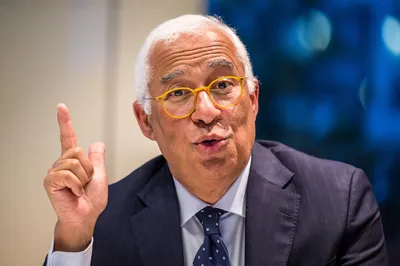Facebook is planning to rebrand the company with a new name
What is the metaverse, and do I have to care?
One part definition, one part aspiration, one part hype
/cdn.vox-cdn.com/uploads/chorus_image/image/69947627/acastro_210929_4779_0001.0.jpg)
. . .Then what is the real metaverse?
There’s no universally accepted definition of a real “metaverse,” except maybe that it’s a fancier successor to the internet. Silicon Valley metaverse proponents sometimes reference a description from venture capitalist Matthew Ball, author of the extensive Metaverse Primer:
“The Metaverse is an expansive network of persistent, real-time rendered 3D worlds and simulations that support continuity of identity, objects, history, payments, and entitlements, and can be experienced synchronously by an effectively unlimited number of users, each with an individual sense of presence.”
Facebook, arguably the tech company with the biggest stake in the metaverse, describes it more simply:
“The ‘metaverse’ is a set of virtual spaces where you can create and explore with other people who aren’t in the same physical space as you.”
There are also broader metaverse-related taxonomies like one from game designer Raph Koster, who draws a distinction between “online worlds,” “multiverses,” and “metaverses.” To Koster, online worlds are digital spaces — from rich 3D environments to text-based ones — focused on one main theme. Multiverses are “multiple different worlds connected in a network, which do not have a shared theme or ruleset,” including Ready Player One’s OASIS. And a metaverse is “a multiverse which interoperates more with the real world,” incorporating things like augmented reality overlays, VR dressing rooms for real stores, and even apps like Google Maps.
If you want something a little snarkier and more impressionistic, you can cite digital scholar Janet Murray — who has described the modern metaverse ideal as “a magical Zoom meeting that has all the playful release of Animal Crossing.”
. . .Look, I just read an article saying we were all going to live in the metaverse, and I want to know what that means.
Right now, tech industry figures who talk about “the metaverse” are usually excited about digital platforms that include some of the following things:
- Feature sets that overlap with older web services or real-world activities
- Real-time 3D computer graphics and personalized avatars
- A variety of person-to-person social interactions that are less competitive and goal-oriented than stereotypical games
- Support for users creating their own virtual items and environments
- Links with outside economic systems so people can profit from virtual goods
- Designs that seem well-suited to virtual and augmented reality headsets, even if they usually support other hardware as well
But in most current discourse, “the metaverse” arguably isn’t a fixed set of attributes. It’s an aspirational term for a future digital world that feels more tangibly connected to our real lives and bodies.
So is Fortnite a metaverse? Or Facebook Horizon? Or is the metaverse all of them put together?
People like Tim Sweeney (CEO of Fortnite publisher Epic) and Facebook CEO Mark Zuckerberg often say they’re just building one piece of a larger interconnected metaverse, similar to an individual social network on the present-day internet. “The metaverse isn’t a single product one company can build alone. Just like the internet, the metaverse exists whether Facebook is there or not,” one recent Facebook statement reads. . ."
READ MORE >
Reference Link: https://www.theverge.com/22701104/metaverse-explained-fortnite-roblox-facebook-horizon
/cdn.vox-cdn.com/uploads/chorus_image/image/70018752/acastro_072121_4674_zuckerberg.0.jpg)


No comments:
Post a Comment